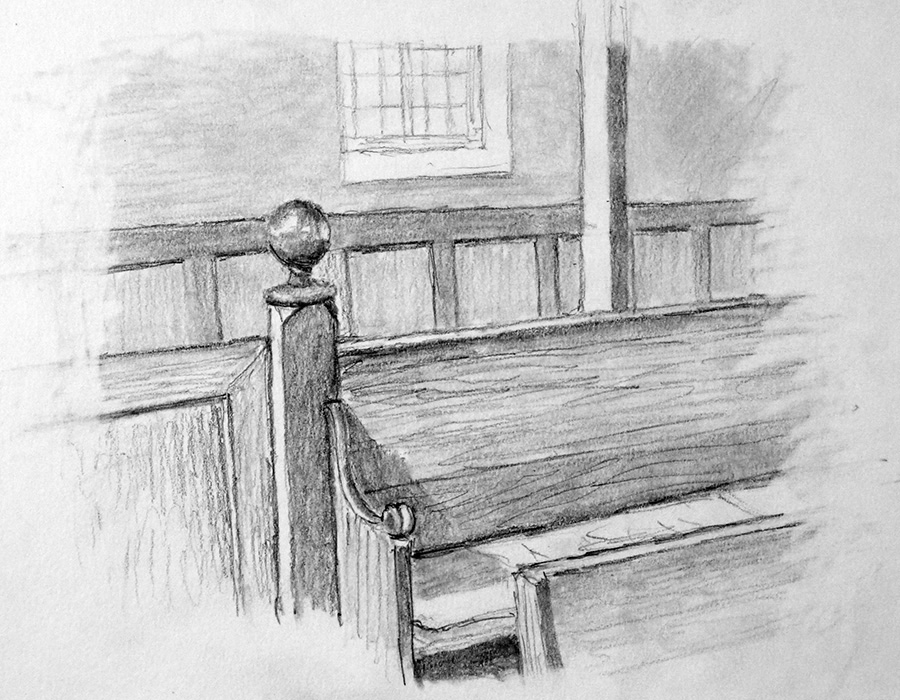
At a Quaker Meeting Hall in Falmouth, MA, I attend the service, which is an hour of ‘silent reflection’ followed by socializing and refreshments. My friends have been before, and they give me some idea of what to expect: a warm, welcoming atmosphere, a solemn and peaceful sense of togetherness. We take our seats on the benches facing an open window. There are no religious icons or symbols to be seen, rather a traditional Quaker architecture designed on principles of simplicity, communality, functionality. Partitions separating two sides of the Hall can be raised or lowered by means of a primitive pulley system housed in the attic. People enter, smiling and nodding at friends. It’s a congregation only in the loosest sense, with people who are traveling often visiting other Quaker Halls. A few words of introduction are said by the host, and we shake hands with our neighbors before plunging into our silent reflection. A clock on the wall above where we are sitting ticks off the seconds like a metronome, otherwise the large room is silent (save the occasional coughs and shuffling of bodies and belongings). I close my eyes and let my thoughts drift freely. I have been told that it is a tradition that those who have something to say may stand during this hour and address the group about any matter on their minds. Indeed, about halfway through the hour, a young man stands and begins speaking about some difficulties he’s been having with the environmental organization he founded. His address resembles a prepared speech more than an improvised ramble, and I have the sense he’s a regular speaker (this is later confirmed by my friends). A few others speak about concerns more global/humanitarian in nature, making vague allusions to God, but otherwise avoiding anything resembling religious doctrine. After the hour is up we cross over to the other side where we nibble on snacks, drink coffee and converse with a some of the regulars. They’re curious about where we come from, what brought us here, etc., but the tone is friendly rather than prying. I’m reminded of the atmosphere of a reform Jewish temple – the combination of friendly openness and solemnity, the lack of pressure to ‘join’ or ‘convert’, the sense of simple pride in what exists and what has been maintained through careful adherence to tradition.
Leave a comment